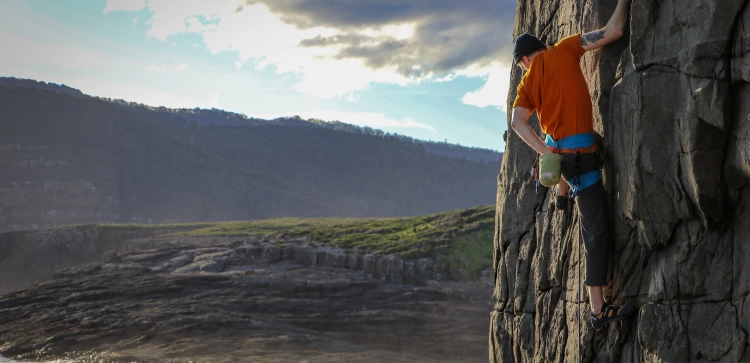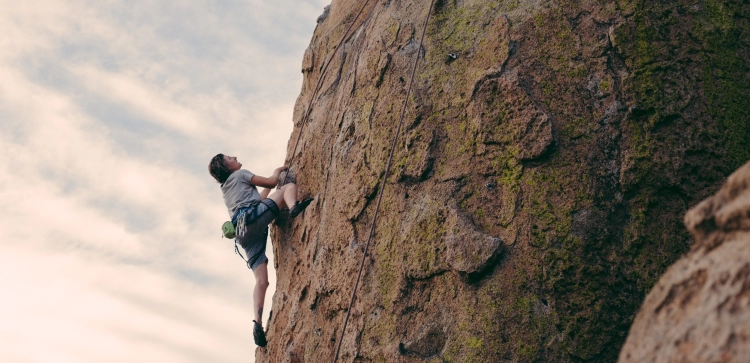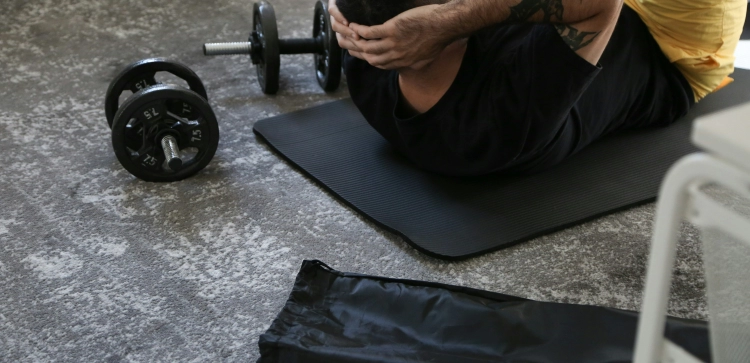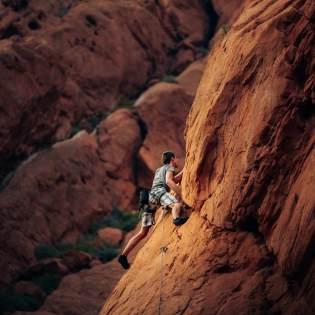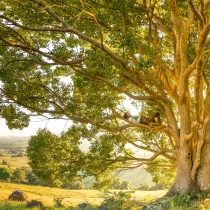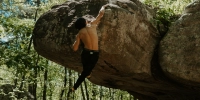How Do You Build Trust In Climbing Partnerships?

Climbing is more than a physical pursuit; it's a collaborative endeavor that often involves forming partnerships built on trust and shared goals. In the climbing world, where reliance on a climbing partner is paramount, establishing and nurturing trust is the bedrock of a successful climbing partnership. In this comprehensive guide, we'll explore the nuances of building trust in climbing partnerships, offering insights into the interpersonal dynamics that contribute to a strong and reliable climbing team.
- The Foundation Of Trust
- Shared Objectives: Aligning Climbing Goals
- Open Communication: The Key To Understanding
- Reliability In Actions: Consistency Is Key
- Establishing Trust On The Rock
- Safety First: Prioritizing Well-Being
- Competence And Skill: Demonstrating Proficiency
- Teamwork: Collaborative Problem-Solving
- Nurturing Trust Beyond The Climb
- Outside The Climbing Realm: Personal Connection
- Reflecting On Experiences: Learning And Growing Together
- Mutual Support: Celebrating Successes And Navigating Failures
- Dealing With Challenges
- Conflict Resolution: Addressing Disagreements Constructively
- Adaptability: Embracing Change And Growth
- Conclusion: A Trust-Forged Climbing Partnership
The Foundation of Trust
Shared Objectives: Aligning Climbing Goals
Building trust in climbing partnerships begins with shared objectives. Climbers should align their goals, whether it's conquering a challenging route, exploring new terrain, or achieving personal milestones. A mutual understanding of each other's aspirations creates a foundation for trust, fostering a collaborative spirit.
Open Communication: The Key to Understanding
Effective communication is the linchpin of trust. Climbers should cultivate an environment where open dialogue prevails. Expressing fears, preferences, and expectations openly ensures that both partners understand each other's perspectives, fostering a sense of mutual understanding and trust.
Reliability in Actions: Consistency is Key
Reliability is a cornerstone of trust. Climbers build trust by consistently demonstrating reliability in actions, whether it's adhering to safety protocols, effectively communicating intentions, or providing assistance when needed. Reliability fosters confidence in a partner's abilities and intentions.
Establishing Trust on the Rock
Safety First: Prioritizing Well-Being
Prioritizing safety is a non-negotiable aspect of trust in climbing partnerships. Partners should commit to upholding safety standards, double-checking gear, and maintaining situational awareness. A shared commitment to safety creates an environment where climbers can trust each other with their well-being.
Competence and Skill: Demonstrating Proficiency
Competence breeds confidence. Climbers build trust by continuously honing their skills, staying informed about climbing techniques, and demonstrating proficiency in handling various situations. A partner who showcases competence instills trust in their ability to navigate challenges on the rock.
Teamwork: Collaborative Problem-Solving
Climbing is a team sport, and effective teamwork is a testament to trust. Partners should engage in collaborative problem-solving, whether it's strategizing route sequences, sharing gear responsibilities, or offering support during challenging climbs. Teamwork strengthens the bond and builds confidence in each other's capabilities.
Nurturing Trust Beyond the Climb
Outside the Climbing Realm: Personal Connection
Building trust extends beyond the climbing realm. Partners should invest time in developing a personal connection, learning about each other's backgrounds, interests, and motivations. A personal bond creates a deeper understanding and fosters trust both on and off the rock.
Reflecting on Experiences: Learning and Growing Together
Reflection is a powerful tool for building trust. Climbing partners should engage in open discussions about past experiences, both successes and challenges. Reflecting on shared moments allows partners to learn from each other, adapt their strategies, and grow together, deepening the trust they share.
Mutual Support: Celebrating Successes and Navigating Failures
Trust is fortified through mutual support during both triumphs and setbacks. Celebrating successes together creates positive reinforcement, while navigating failures as a team builds resilience. Partners who support each other emotionally and mentally forge a trust that transcends the climbing journey.
Dealing with Challenges
Conflict Resolution: Addressing Disagreements Constructively
Challenges and disagreements are inevitable in any partnership. Climbers should approach conflicts constructively, addressing issues openly and seeking resolution through effective communication. A willingness to navigate challenges together builds trust in the partnership's resilience.
Adaptability: Embracing Change and Growth
Climbing partnerships evolve, and adaptability is crucial for sustaining trust. Partners should embrace change, welcome personal growth, and adapt their strategies to evolving circumstances. An adaptable mindset ensures that trust remains dynamic and resilient in the face of challenges.
Conclusion: A Trust-Forged Climbing Partnership
Building trust in climbing partnerships is a continuous journey that requires commitment, communication, and collaboration. By aligning goals, prioritizing safety, demonstrating competence, nurturing personal connections, and navigating challenges together, climbers can forge bonds that extend beyond the rock face. A trust-forged climbing partnership not only enhances the climbing experience but also creates lasting connections built on mutual respect and shared aspirations.

